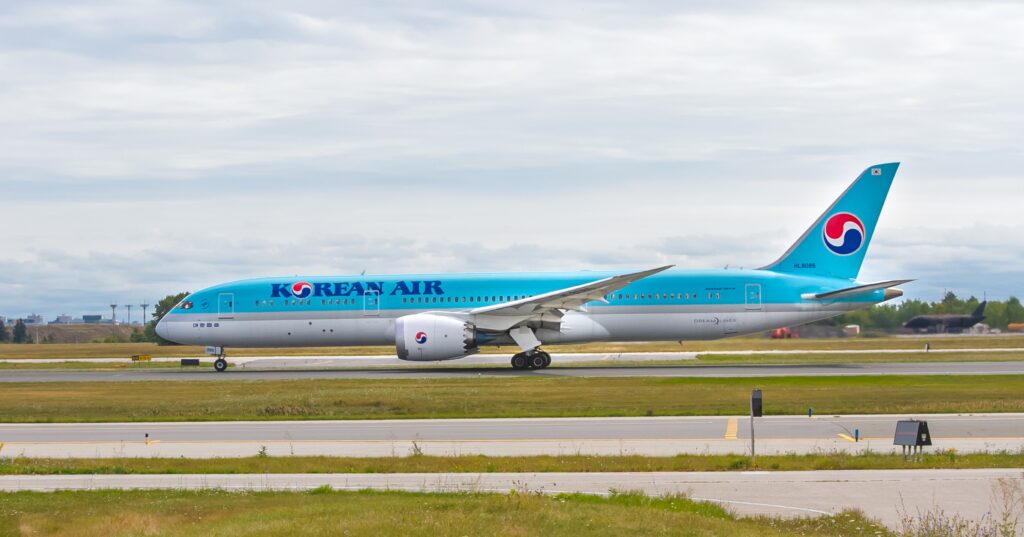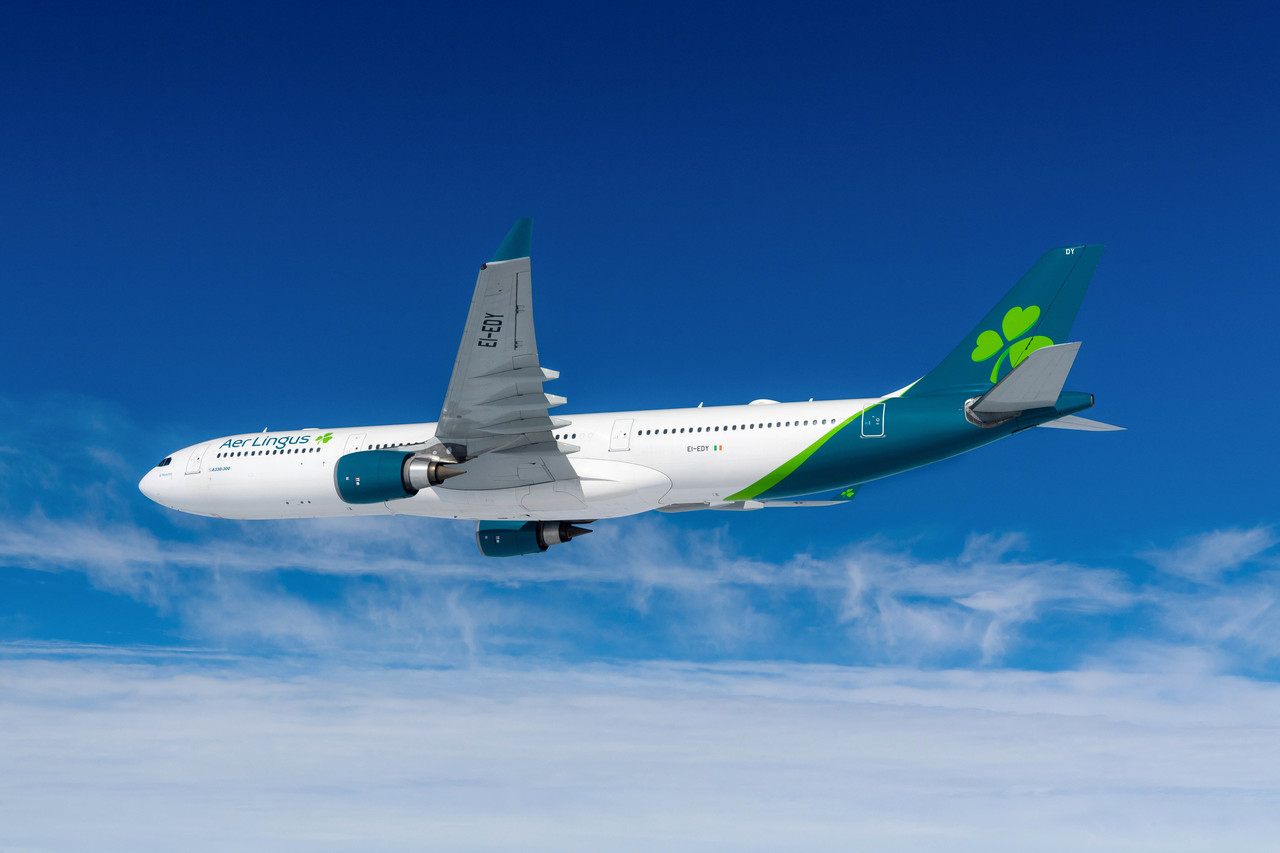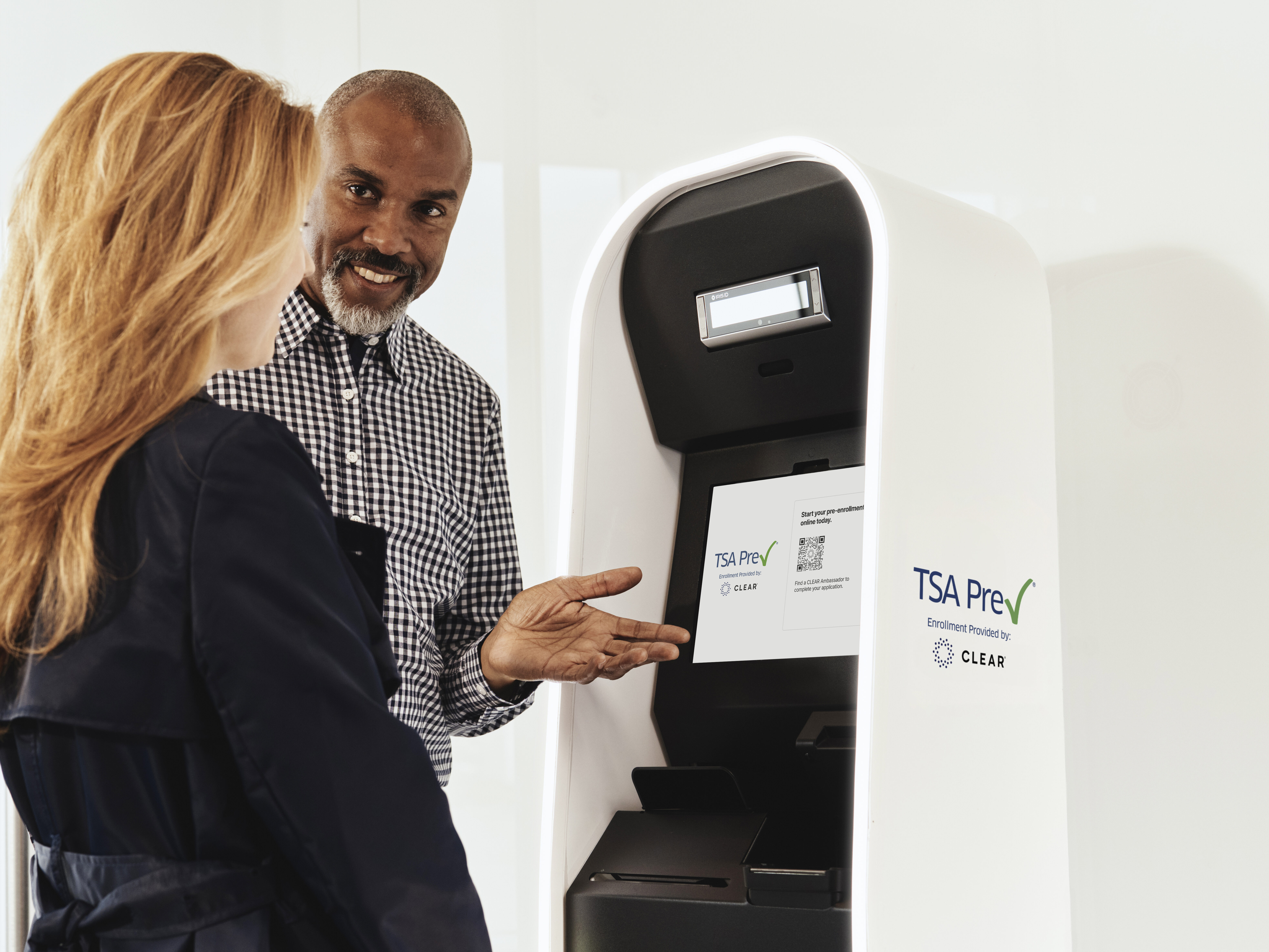Korean Air to Weigh Passengers Before Flights
Passengers at Seoul’s Incheon and Gimpo airports will be asked to step on scales before boarding their flights, part of a safety initiative
by Lauren Smith
September 20, 2023

Photo: Courtesy of Arawark Chen / Unsplash
Over the next few weeks, passengers boarding Korean Air flights out of Seoul will be asked to step on the scale, a move the carrier says is required by aviation regulators.
Between August 28 and September 6, Korean Air will weigh passengers and their carry-on baggage before domestic flights out of Seoul’s Gimpo International Airport (GMP).

Photo: Korean Air, Boeing 787-9 Dreamliner. Courtesy of John McArthur / Unsplash
Then, between September 8 and 19, passengers and their bags will be weighed before international flights departing from the capital’s Incheon International Airport (ICN). The measurements will be taken at the gate before passengers board.
Korean Air says that South Korea’s Ministry of Land, Infrastructure and Transport (MOLIT) requires Korean airlines to measure the weight of passengers and their carry-on items every five years in order to update standardized passenger weights. These standardized weights are used to calculate overall aircraft weight, set fuel levels, and safely distribute the load on planes.
When Korean carriers last weighed travelers in 2017, the average weight for adult men was found to be 178.6 pounds, while that for adult women was 152.1 pounds.
Other Korean operators are also required to weigh passengers as part of the mandate, Korean Air said.
“Korea’s Ministry of Land, Infrastructure and Transportation (MOLIT) has advised all Korean flag carriers to weigh passengers with their carry-on baggage to update its ‘Aircraft Weight and Balance Management Standards,’” a spokesperson for the airline said.

Photo: Korean Air, Airbus A330-300. Courtesy of Kevin Lee / Unsplash
“This is crucial for the safety of flight operations, and Korean Air complies with this mandate and remains committed to safety, its number one priority.”
Additionally, accurate weight measurements can ensure aircraft aren’t carrying more fuel than necessary, reducing their environmental impact and saving money—up to $1 billion a year, the English-language newspaper Korea JoongAng Daily reports.
However, the airline has faced backlash from passengers concerned about their privacy. “The data collated anonymously will be utilized for survey purposes and doesn’t mean overweight passengers will need to pay more,” Korean Air said in response to those worries.
Passengers uncomfortable being weighed can opt out by speaking to boarding staff at the gates, the airline added.
Korean Air isn’t the first carrier to ask passengers to step on the scale. In June, Air New Zealand weighed more than 10,000 passengers boarding international flights from Auckland (AKL), as required by the country’s Civil Aviation Authority (CAA). As in South Korea, the measurements were used to update the standardized weight of travelers used to calculate the overall weight of aircraft.
“We weigh everything that goes on the aircraft, from the cargo to the meals onboard to the luggage in the hold. For customers, crew, and cabin bags, we use average weights, which we get from doing this survey,” Alastair James, Air New Zealand’s load control improvement specialist, explained.
U.S. airlines are unlikely to set up scales at check-in desks, travel industry experts have said. While the Federal Aviation Authority (FAA) requires airlines to submit new average passenger weight estimates, it permits them to ask passengers to volunteer their weight, with staff told to make “reasonable estimates” if they believe the traveler has “understated” their weight.



